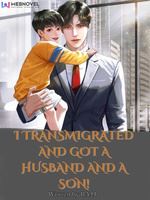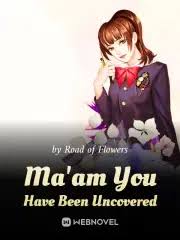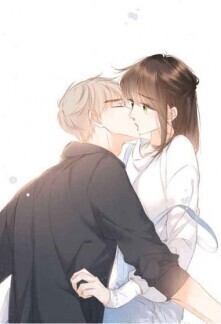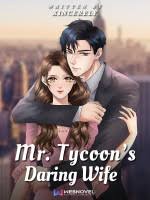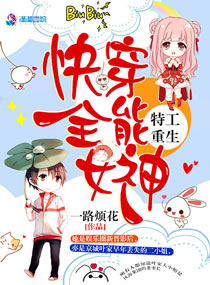The Story in 3 Sentences
Qiao Nan awakens from a tragic first life where her family used her as a organ donor for her favored sister, finding herself reborn back to her junior high school days with a chance to rewrite her destiny .
Through determination and academic excellence, she gradually escapes her toxic family’s influence, gains independence, and crosses paths with Zhai Sheng, a promising military figure who becomes unexpectedly entwined with her future .
Her journey spans decades as she navigates marriage, motherhood, and career success in her reborn life, only to eventually discover a devastating truth about the nature of her reality that challenges everything she thought she had achieved .
Why It Stands Out
1. The Forty-Year Character Odyssey
This novel distinguishes itself through its unprecedented chronological scope, following Qiao Nan from adolescence through motherhood into her senior years, creating one of the most complete life portraits in the rebirth genre. Unlike typical stories that conclude with marriage or revenge, this narrative continues exploring how her rebirth affects every phase of her existence, including child-rearing, career development, and eventually grandmotherhood, providing a satisfyingly comprehensive character study that spans over 2,500 chapters .
2. The Ultimate Narrative Bait-and-Switch
The novel’s most controversial yet boldest feature is its monumental plot twist that recontextualizes the entire story. After nearly two thousand chapters of detailed rebirth narrative, Qiao Nan awakens from a coma to discover her glorious second chance was essentially an elaborate dream, forcing her to rebuild her life in a much harsher reality where many of her dream accomplishments never occurred . This narrative risk divided readers but demonstrated the author’s willingness to subvert expectations dramatically.
3. Realistic Family Dynamics Over Fantasy Revenge
Rather than employing supernatural revenge tactics against her toxic family, Qiao Nan’s approach is notably realistic and methodical. She focuses on academic achievement, financial independence, and building a support network of chosen family rather than engaging in dramatic confrontations. This creates a more relatable empowerment fantasy that emphasizes gradual self-improvement over sensational vengeance, though her mother and sister remain consistently terrible throughout most of the narrative .
Characters That Leave a Mark
There’s Ding Jiayi – Qiao Nan’s profoundly biased mother who embodies toxic parental favoritism to its extreme, consistently sacrificing her younger daughter’s wellbeing, education, and even bodily organs for the benefit of her favored eldest child without remorse .
You’ll meet Qiao Zijin, who represents the spoiled, entitled sibling who never develops beyond her selfish worldview, constantly exploiting her sister and parents while contributing nothing, ultimately meeting a lonely end that offers poetic justice without dramatic revenge .
And Zhai Sheng? He’s the seemingly cold military figure whose persistence forms an unexpected anchor in Qiao Nan’s life, appearing in both her dream reality and waking life as a constant figure of steadfast support despite their different circumstances in each timeline .
The Flaws Fans Debate
The romance between Qiao Nan and Zhai Sheng feels underdeveloped compared to the extensive family drama, with the male lead receiving surprisingly little page time despite being title-prominent, leaving many readers unsatisfied with their emotional connection .
The novel’s extreme length (over 2,500 chapters) leads to repetitive cycles of conflict with the same antagonists, particularly Qiao Nan’s mother and sister, who never seem to evolve or face permanent consequences until the very end, testing readers’ patience .
The massive plot twist revealing most of the story as a dream frustrated many readers who invested emotionally in Qiao Nan’s rebirth journey, feeling betrayed by the narrative bait-and-switch that negated much of their emotional investment .
Must-Experience Arcs
Ch. 1–400: Academic Liberation Arc – Qiao Nan’s grueling battle to secure her right to education against her family’s active opposition, using academic excellence as her primary weapon to escape her predetermined fate .
Ch. 800–1200: Military Marriage Arc – The unconventional courtship and marriage to Zhai Sheng against complex family politics and social expectations, featuring the unexpected involvement of supportive mentor figures who provide the dowry her own family refuses to offer .
Ch. 1700–2541: Reality Versus Dream Arc – The shocking transition from Qiao Nan’s dream rebirth to her waking reality and her subsequent journey to find happiness in a much more challenging circumstances, featuring an older, wheelchair-bound Zhai Sheng and a completely different path to eventual fulfillment .
Killer Quotes
“Qiao Nan, you are not as pretty or smart as your elder sister. You are not as blessed as her. You have no right to study, marry, or to have your happiness!”
“This life is tiring.”
“Good Morning, Chief!”
Cultural Impact
The novel sparked extensive forum discussions about the ethics of the dream twist narrative device, with readers passionately debating whether it represented bold storytelling or a betrayal of reader investment .
Many fans created reading guides suggesting stopping points before the controversial twist, creating an alternative consensus ending that preserves the rebirth narrative without the dream revelation .
The phrase “This life is tiring” from Qiao Zijin’s deathbed scene became a popular meme in novel communities to express exhaustion with dramatic situations or frustrating characters .
Despite mixed reactions to the twist, the novel maintains a dedicated fanbase who appreciate its ambitious scope and emotional depth, with many considering it worth the time investment despite its flaws .
Final Verdict
Start Here If You Want:
A female empowerment story that emphasizes academic and professional achievement over romantic fulfillment as the path to independence.
An incredibly detailed slice-of-life narrative that follows a character through virtually every life stage from youth to old age.
A story that doesn’t shy away from brutal family dynamics and offers a realistic portrayal of overcoming toxic relationships through persistence rather than dramatic confrontations.
Study If You Love:
Narrative experiments that challenge conventional storytelling structures, including meta-commentary on the rebirth genre itself.
Complex explorations of how different life choices create ripple effects across decades, examined through the dual lenses of dream and reality.
Stories that explore the concept of chosen family versus biological family, with nuanced portrayals of mentorship and non-blood relationships.
Avoid If You Prefer:
Stories with consistent romantic focus, as the military marriage promised by the title takes backseat to family drama.
Conclusive revenge narratives where antagonists receive swift comeuppance, as the toxic family members persist throughout most of the story.
Straightforward rebirth narratives without meta-commentary, as the dream twist fundamentally changes the story’s interpretation.

